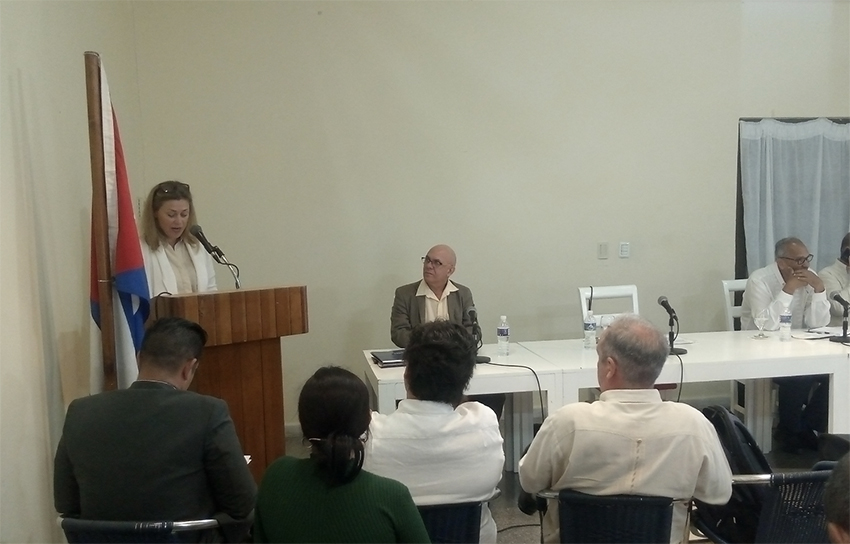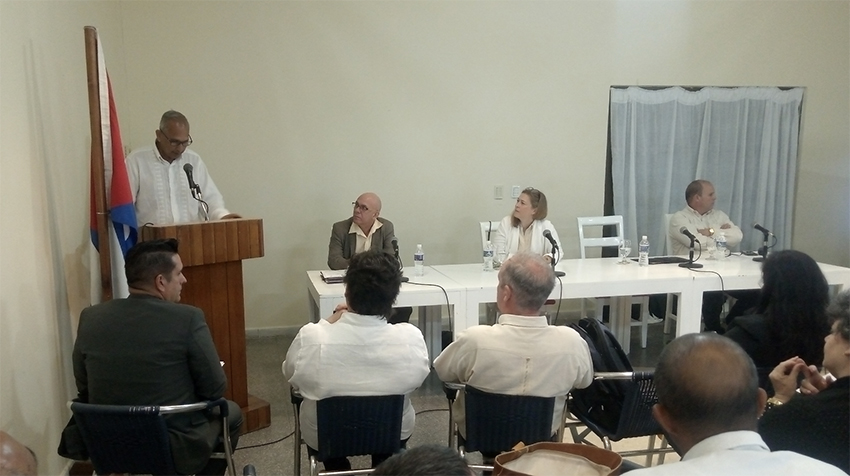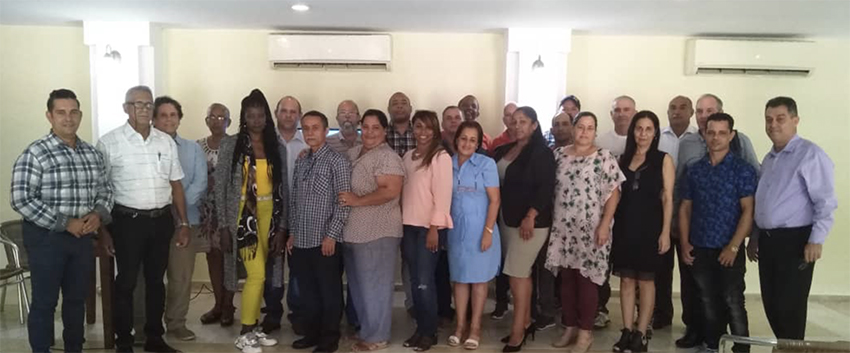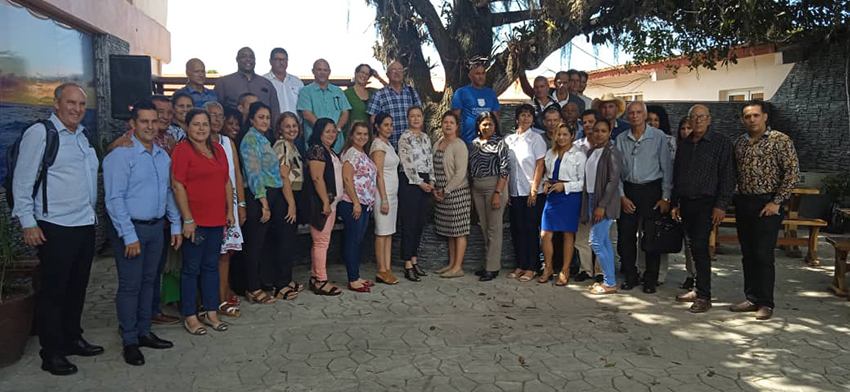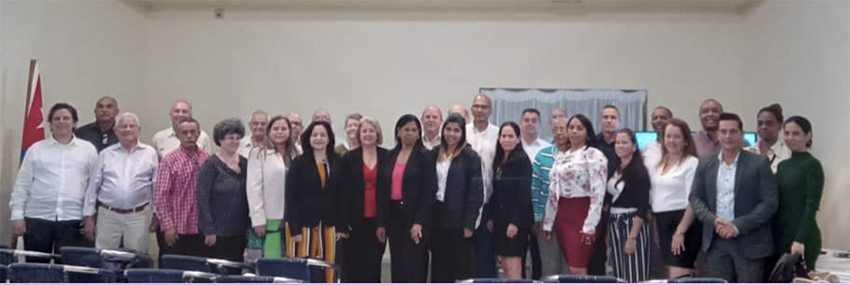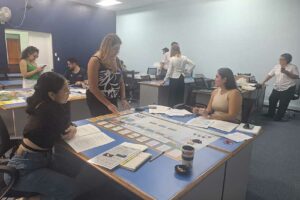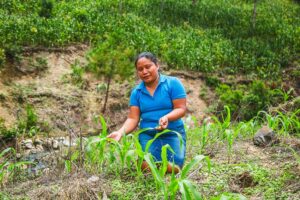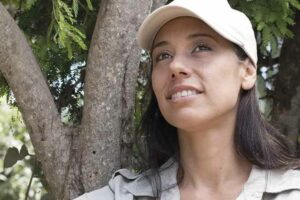CIENPINOS project launched in three Cuban provinces
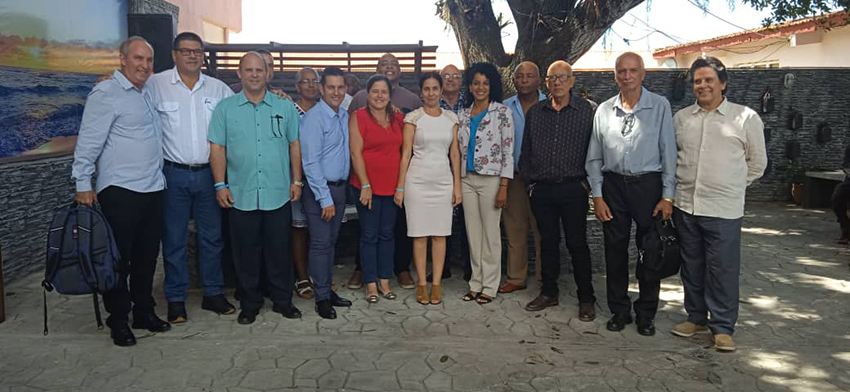
- The project seeks to contribute to the creation of the necessary capacities for municipal climate management and the management of sustainable agroforestry systems.
April 13, 2023. To kick off the CIENPINOS project: Municipal climate governance and sustainable agro-forestry production of food with low emissions and adapted to climate change in Cienfuegos and Pinar del Río, Cuba, three inaugural workshops were held in March in the provinces of Havana, Pinar del Río and Cienfuegos.
This project, implemented by CATIE (Tropical Agricultural Research and Higher Education Center) and the Indio Hatuey Experimental Station, with funding from the Swedish International Development Cooperation Agency (SIDA), aims to contribute to capacity building for municipal climate management and the management of sustainable agro-forestry systems that are low in emissions, resilient to climate change and conserve biodiversity in the municipal governments of Cumanayagua, Abreus, Viñales and La Palma. It also involves producers of goats in Cumanayagua, as well as grazing pigs in the pine-oak forests of Viñales.
The workshops were attended by Hanna Lambert, Swedish Ambassador to Cuba; Ulrika Åhmark and Emilie Göransson, SIDA officers in charge of the project; Muhammad Ibrahim, General Director of CATIE; Eduardo Somarriba, scientific advisor to the project; and Reynaldo Velázquez, Vice Minister of the Ministry of Higher Education of Cuba.
Ibrahim acknowledged the contribution of the Swedish Government and Sida in financing lines of research on environmental economics and sustainable development and referred to the challenges of the project towards capacity building, institutional alliances, working with local stakeholders and recognizing the role of youth and women in agricultural activities.
During the workshops, both rectors of the Universities of Cienfuegos and Pinar del Río agreed in pointing out the commitment of the universities to the success of the project and the strength of having municipal sites where Agronomy is studied.
Among the main results expected from the project is the generation of the necessary knowledge on the climate vulnerability of agricultural and forestry production and the balance of greenhouse gases resulting from the dynamics of land use change in four municipalities. The studies will be developed by university students on topics such as: climate change adaptation and mitigation at the municipal level; the improvement of the municipal development plan in its climate action, biodiversity conservation and sustainable agro-forestry development components; the development of sustainable agro-forestry systems based on goat production in silvo-pastoral systems; pig grazing in mixed pine-oak forests; the integration of producers, local industrial processors and local ecotourism entrepreneurs into inclusive and sustainable value chains; capacity building for young people, women and local communities in the municipalities of Cumanayagua, Abreus, Viñales and La Palma interested in developing sustainable agricultural MSMEs with low greenhouse gas emissions.
Giraldo Jesús Martín, from the CIENPINOS work team, pointed out the relevance of the project for Cuba, not only in terms of capacity building and training of human talent, but also in terms of its contribution to territorial governance, providing a model with an integrated approach, that is to say environmental and productive.
